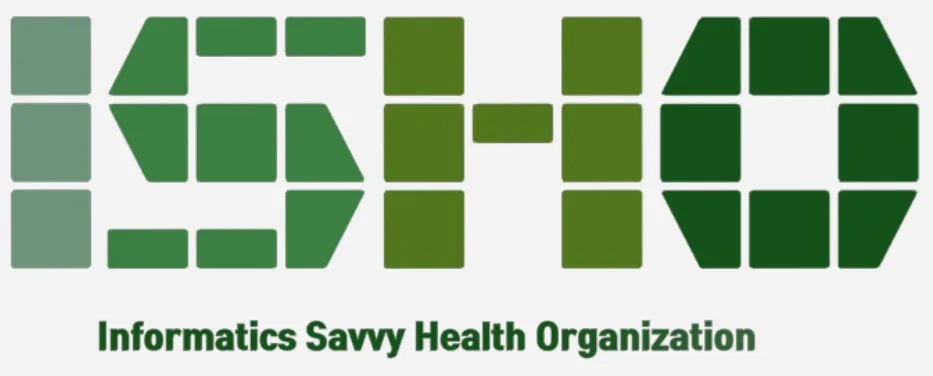
ISHO Assessment: Strengthening health systems and public health informatics
Public health agencies worldwide face numerous barriers that hinder the effective use and application of digital health technologies and public health informatics. Challenges include limited capacities, inadequate infrastructure, governance issues, and concerns about privacy, confidentiality, and cybersecurity. As the global information revolution progresses, countries must navigate these barriers and better understand the data and technology forces shaping public health practice.
The ISHO assessment process
To address these challenges and maximize the benefits of digital technology in public health, countries and organizations are striving to build Informatics-Savvy Health Organizations (ISHOs). An ISHO is characterized by its ability to obtain, use, and securely exchange information electronically to enhance public health practice and outcomes. This involves having an informatics vision, robust policies, governance structures, public health informatics-skilled workforce, and effective information systems.
Systematic maturity assessments help establish a baseline dataset for prioritizing, planning, and monitoring the development of a health information system ecosystem, shaping an action-oriented informatics roadmap. PATH, in collaboration with the Digital Initiatives Group (DIGI) at the University of Washington, adapted the ISHO assessment toolkit for digital health system maturity assessment. The ISHO assessment process can be applied to organizations of different types—ranging from a whole country to a national ministry of health or even specific departments or units within a broader organization.
A catalyst for public health informatics transformation
The ISHO assessment helps public health systems achieve their informatics vision by offering a comprehensive framework to assess readiness for transformation, identify critical gaps, and build stakeholder consensus. This collaborative process develops roadmaps to enhance informatics capabilities at national and sub-national levels.
This toolkit focuses on three core capabilities:
- Vision, policy, and governance: A clear vision, strategy, and governance processes for strategically managing information and information technology as critical resources.
- Skilled workforce: Availability of adequate staff skilled in using information and information technology tools.
- Effective information systems: Information systems are thoughtfully designed to support the work of the staff effectively and efficiently.
Stages of maturity
The ISHO assessment uses the Capability Maturity Model as a structured framework to measure informatics maturity.
This model outlines six stages of progression toward becoming a fully informatics-savvy organization: (1) absent, (2) initial, (3) managed, (4) defined, (5) measured, and (6) optimized. This model enables organizations to systematically identify strengths and gaps, set clear goals for progressing through these maturity levels, and develop targeted roadmaps and improvement plans to achieve a more advanced ISHO state.
During an assessment, the team, using available evidence, focus group discussion, and consensus building amongst the participants, determines the best capability maturity level for each core essential element and its corresponding question.
The ISHO assessment toolkit
The ISHO assessment toolkit includes:
- Above-Site Assessment Data Entry and Analysis Tool
This tool can be applied at district, regional, provincial, state, or national levels to assess informatics maturity and track progress over time. This is an Excel-based tool used to record, score, and analyze responses for each core essential element. The tool includes 31 questions organized under the three ISHO core pillars: Vision, policy, and governance (12 questions); Skilled workforce (7 questions); and Effective information systems (12 questions). It automatically generates summary tables and visualizations to support interpretation of findings. - Above-Site Assessment User Guide
This user guide provides step-by-step instructions for conducting an Above-Site ISHO Assessment. The guide is applicable to countries and organizations planning their first assessment or re-evaluating existing capabilities. - Key Informant Interview Guide
This is a short facilitation guide designed to collect in-depth qualitative insights from key stakeholders during the assessment. It provides standardized scripts, facilitation steps, and optional probes to ensure consistency across different interviews, interviewers and assessments. - Above-Site ISHO Assessment Coversheet
This is a standardized form used to document assessment logistics, such as assessment dates and time, participating institutions, team members, and key contacts to ensure traceability and consistent documentation. - Statement of Intent to Maintain Confidentiality
An agreement form for all team members and participants involved in the assessment, underscoring the commitment to maintain confidentiality and safeguard sensitive organizational information. - Verbal Consent for Above-Site ISHO Assessments
A brief script and documentation form used to obtain verbal consent from assessment participants. It ensures ethical data collection practices and participant understanding of the purpose, scope, and voluntary nature of their participation. - Introduction to ISHO and ISHO Assessments
A PowerPoint presentation that introduces the ISHO concept, the purpose of ISHO assessments, and how the toolkit supports public health systems in strengthening informatics capabilities. It is typically used during orientation or stakeholder engagement. - ISHO Assessment – Data Collectors Training
A training presentation designed to prepare facilitators and data collectors to implement the Above-Site ISHO Assessment. It provides an overview of the assessment process, key concepts, facilitation techniques, and data quality assurance measures to ensure standardized, high-quality data collection across all sites.
How might countries benefit from ISHO assessments?
The ISHO assessment tool offers public health organizations a structured and strategic approach to enhance their informatics capabilities. By identifying strengths and weaknesses and developing actionable roadmaps, the ISHO tools help build resilient health systems that can effectively leverage digital health technologies to improve population health outcomes—specifically, ISHO assessments and results:
- Provide a clear understanding of current informatics capabilities
- Facilitate stakeholder engagement and consensus building
- Identify critical gaps and areas for improvement
- Guide strategic planning and resource allocation
- Support the development of targeted interventions to strengthen health systems
For more information, please visit DIGI's ISHO page or contact the team at digit@uw.edu.